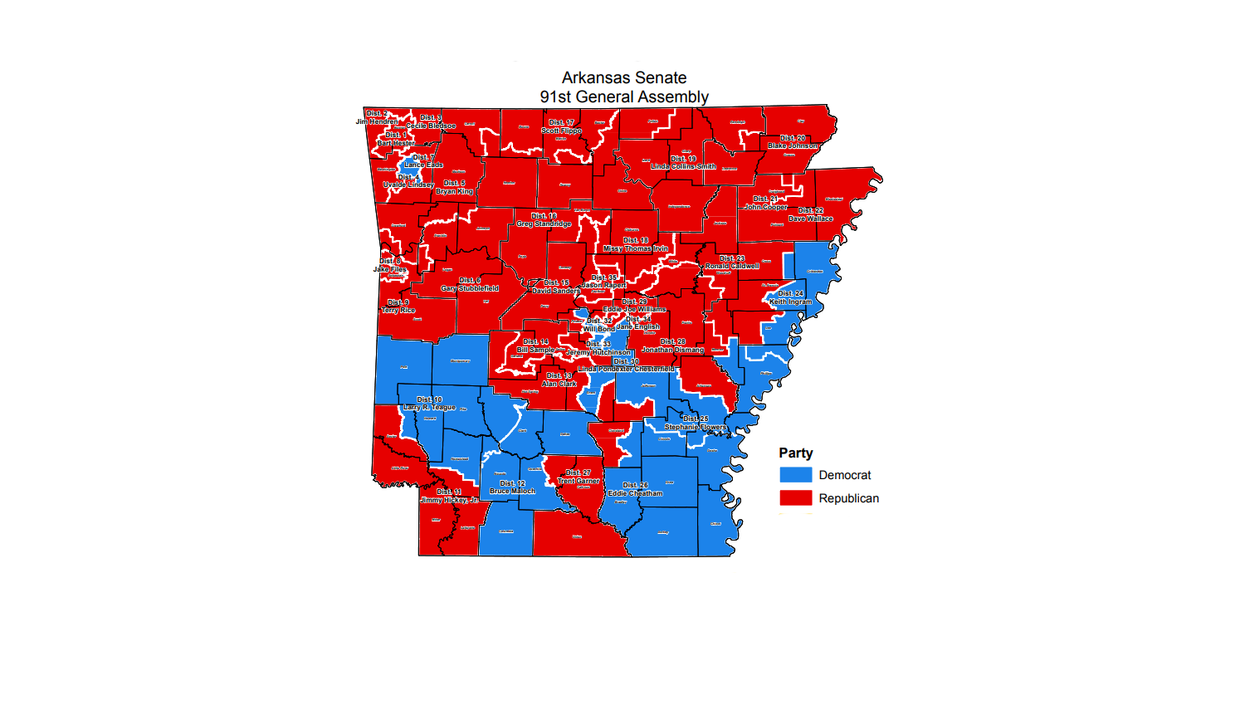Redistricting reformers in Arkansas are the latest to ask the courts to relax petition signature requirements in the time of coronavirus.
Arkansas Voters First filed a lawsuit Wednesday asking a federal judge to loosen the state's rules given the unprecedented circumstances.
While much of the focus at the intersection of democracy and the pandemic has centered on delayed primaries and altered rules for the November presidential contest, the plight of grassroots groups to register voters and get their measures on the ballot has also intensified.
A federal judge in Arizona this week dismissed a request from two ballot measure campaigns, which wanted permission to get signatures online instead of in person, while the top court in Massachusetts relaxed the timetables and signatures required from would-be candidates there.
But the number of court fights has so far been exceeded by those who have given up: At least 21 efforts to get proposals on the ballot in 11 states have been paused if not outright abandoned in the face of Covid-19, and legions of potential candidates across the country have put their aspirations on hold.
Arkansas Voters First wants the people to be allowed to decide this fall to turn over the drawing of both congressional and legislative maps to an independent commission starting next year, after the census provides the population details for each state. Thirteen other states have already done so at least for some maps.
The maps drawn by the Republican-majority Arkansas General Assembly a decade ago have produced an all-GOP congressional delegation and a state Capitol in Little Rock where just a quarter of the lawmakers are Democrats -- even though the party got 35 percent of the statewide vote two years ago. Only seven states have a more partisan gerrymandered set of maps, according to the University of Southern California's Schwarzenegger Institute.
Polling by Arkansas Voters First found 58 percent in favor of an independent commission.
"We don't have the luxury of waiting until next year," said the group's director, Bonnie Miller. "If we are denied access to the ballot this year, Arkansas could be stuck with unfair and unrepresentative districts for another 10 years."
State law requires 89,000 registered voters to sign a petition in the presence of a canvasser by July 3, and the group said it had only begun the process when the pandemic took hold. GOP Arkansas Gov. Asa Hutchinson is one of only eight governors who has never issued a stay-at-home order, however.
The anti-gerrymandering group wants the federal court to suspend the witness requirement, reduce the signature minimum, extend the deadline and permit the use of electronic signatures.
"Every voice should be heard in our democracy, and every vote should count equally," said Paul Smith of the Campaign Legal Center, which is representing the group. "Arkansans deserve the right to decide whether their voting district maps will be drawn by a neutral commission or politicians pursuing a partisan agenda."




















Trump & Hegseth gave Mark Kelly a huge 2028 gift